Reverence Lost
How My Son Left His Mark on the Holy See
Have you ever looked at your kids in a moment of pure weirdness and thought, “what the hell are you doing?”
We’re four hours deep into touring the Apostolic Palace, Papal Palace, Vatican Palace - it’s the Pope’s house - a massive structure that’s been continuously built, rebuilt, and added onto for 1,500 years next to St Peters Basilica.
Every corridor is packed with statues, monuments, names of long dead popes marking their contributions to Christendom (and to the wealth of the church). The level of detail is genuinely overwhelming. My wife had stated that we needed an entire day of our time in Rome dedicated to the Vatican. Truthfully, that was not enough time.
Anyways, here I am, having wound through all the public floors and exhibits, prodded through the Sistine Chapel like cattle, finally reaching the end of the tour, walking through a gift shop corridor when I turn to see my oldest son grab the glass enclosure of what I can only assume is a priceless artifact of the Christian Faith, and lick the glass.
I’m talking full head articulation from 6 o’clock to 12 o’clock. The kind of lick that leaves a comic book quality streak. Pretty sure I’ve seen Scooby Doo do this to Shaggy. I hurriedly ushered my family out of the hall before we became a spectacle. We all know what some legalist can do if you make a scene (Pharisee joke).
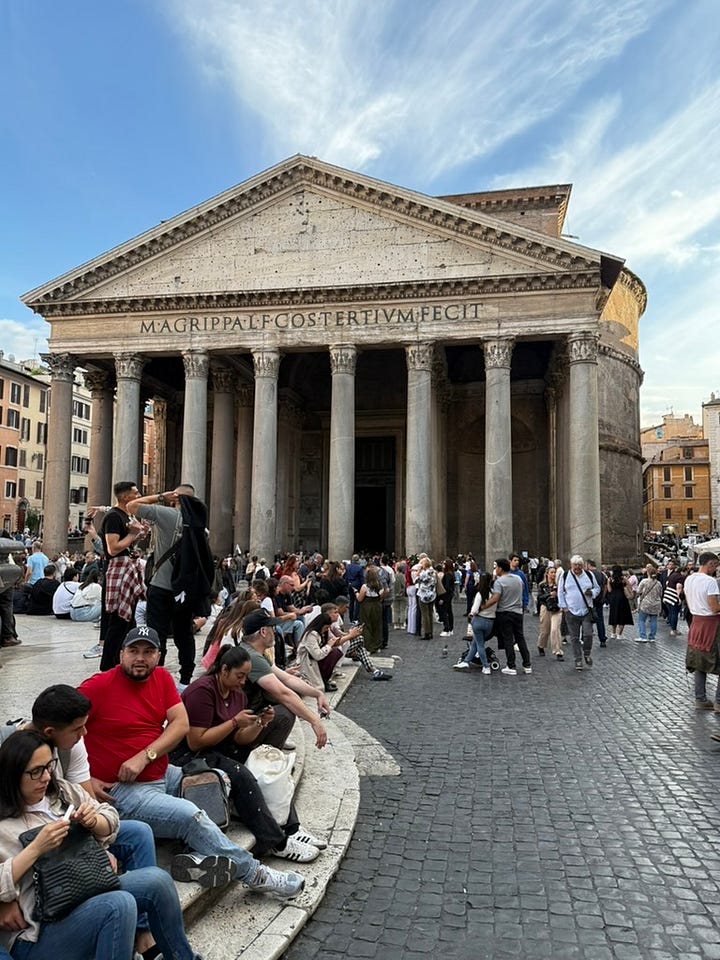
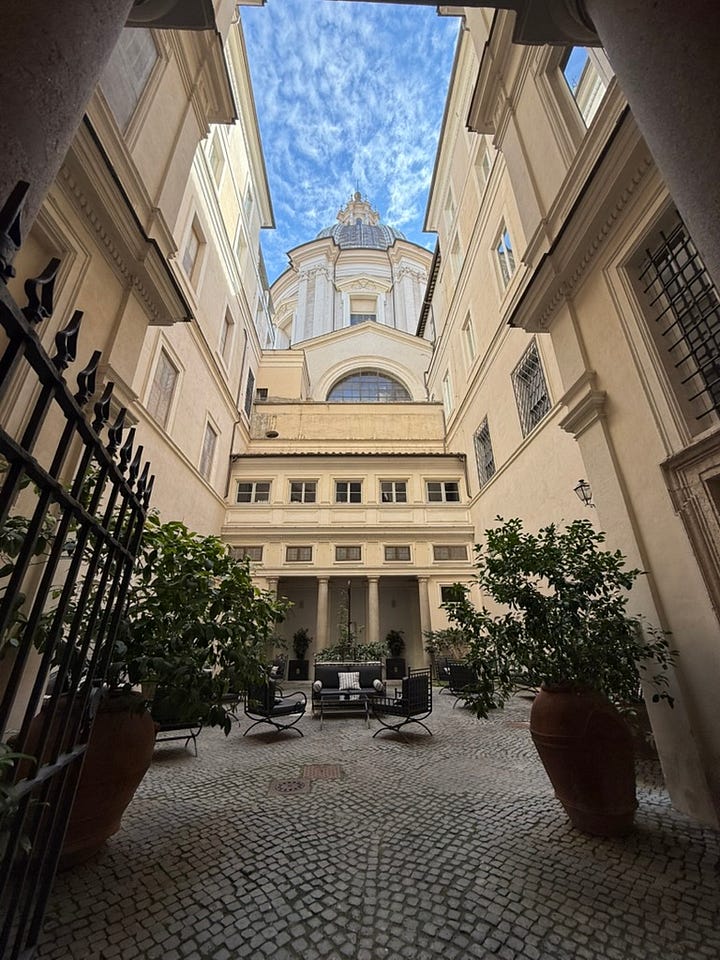
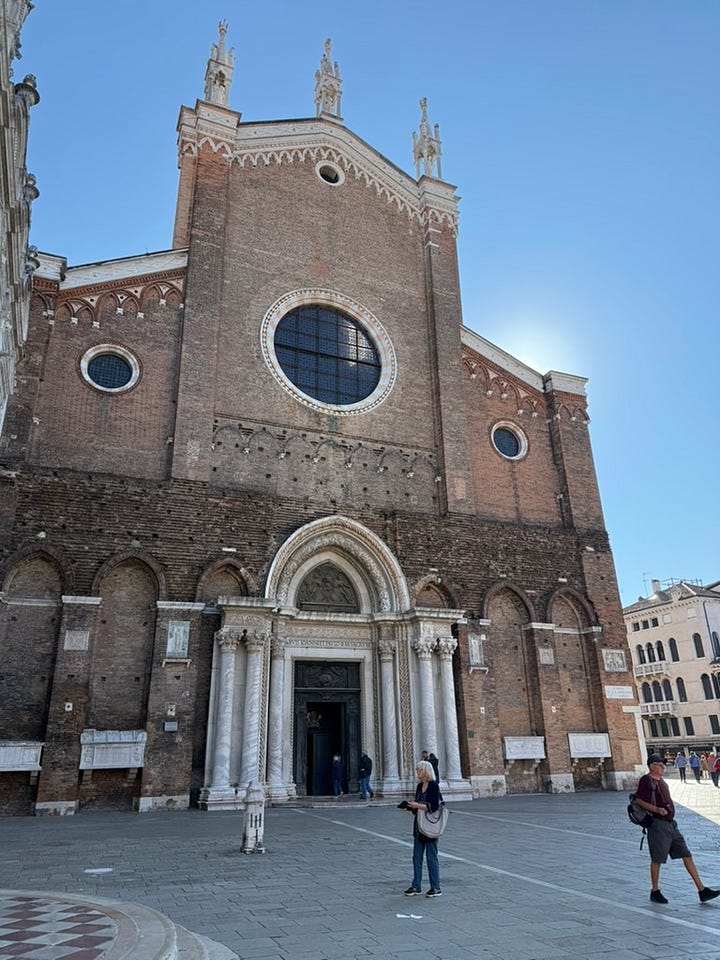
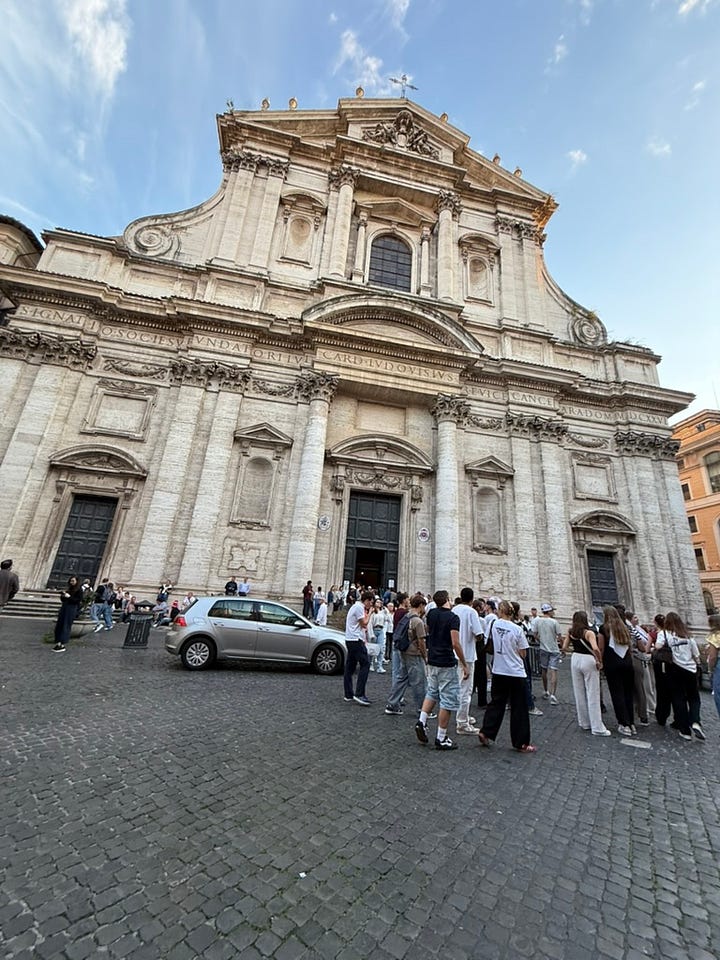
Upon reflection this got me thinking about how we adults do the same thing, just mentally and with far less tongue on priceless art. We walk through spaces saturated with the divine, glazed over and bored, until we do something to feel something.
That evening we were staying in a hotel along the Piazza Navona, which sits on the ruins of an ancient circus built for Emperor Domitian. The hotel itself was built in the 1600s by famed Baroque artist Borromini (have you heard of him?), commissioned by Pope Innocent X (spoiler alert: not so Innocent) as a palace for his family.
We were sleeping in a building older than my country, looking out at a square older than that, built on top of something older still. And you know what my brain kept doing? Not taking in the magnificence of it all. The human mind is magnificent at taking the extraordinary and filing it under “Thursday.”
That same evening there was a private concert in a side chapel of the Chiesa di Sant’Agnese in Agone, a 17th century church attached to the palace, now a hotel, and I find myself in a secret chamber that Pope Innocent X had added to his residence that allowed him to spy on the priest (remember what I said earlier about him?). This secret room had a grate that on the pope’s side was bare metal, and the other (being a part of the ornate ceiling in the chapel) elaborate gold and painted to hide his sin.
I was standing where a Pope stood. I was sleeping where a Pope slept. I walked through a crypt that day with dozens of Pope’s laid in rest. Heck, I gazed upon the spot that the Church believes the Apostle Peter is resting until the resurrection. It was overwhelming don’t get me wrong, but it was overwhelming in a fleeting moment as I moved to the next dopamine hit of travel.
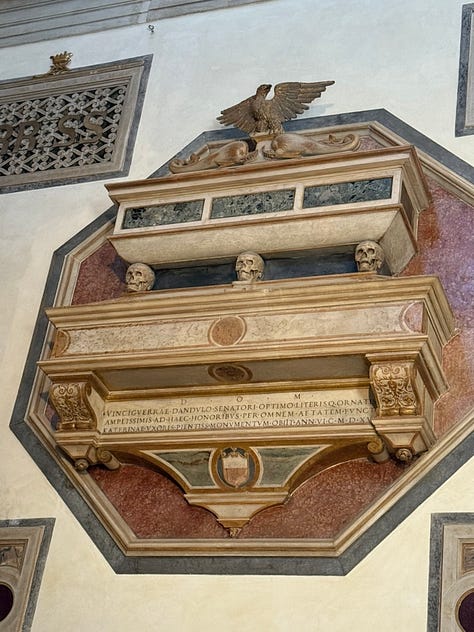
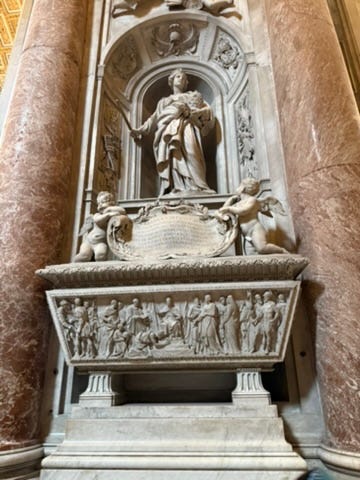
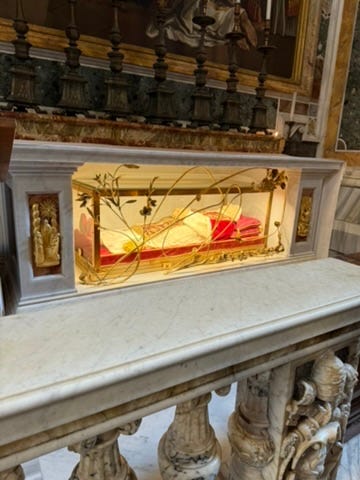
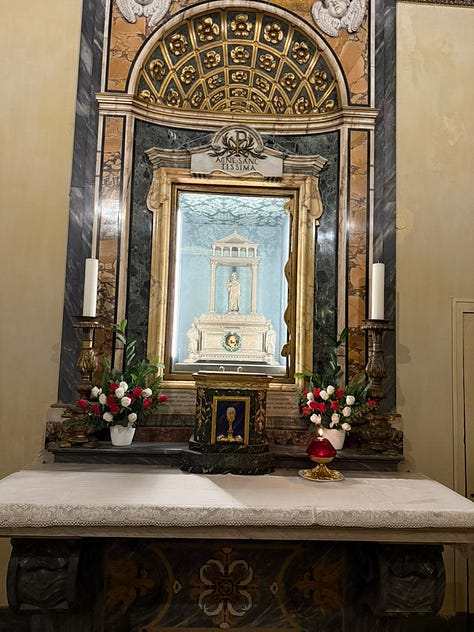
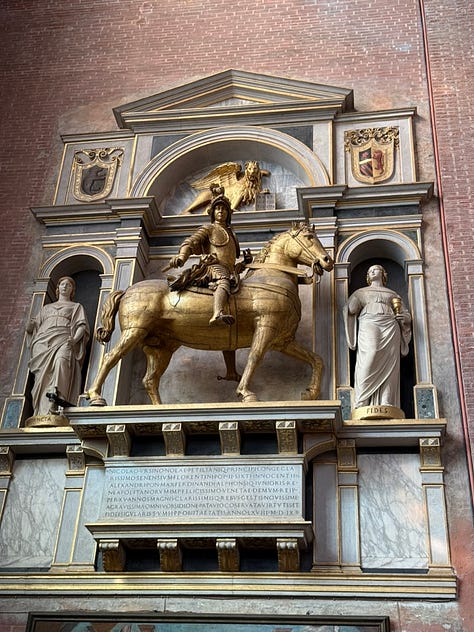
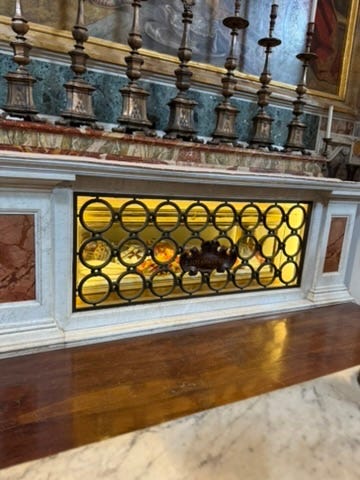
I couldn’t help but think that somewhere between the Reformation’s rightful emphasis on God’s accessibility and our modern pursuit of “come as you are” church culture, have we accidentally made God feel ordinary?
I made a point to walk into every church in Italy while there and I started to understand something physically that I’d only understood intellectually before, and thats a stretch. Every surface was intentional. The ceiling fresco literally breaks through the architectural frame creating illusions, spilling into three-dimensional space. Light pours through windows positioned to create specific effects at specific times of day. Marble carved so skillfully it looks like fabric caught in a soft breeze. This isn’t Restoration Hardware space with some minor detailing. This was theology made visible, a physical argument that encountering God should overwhelm your senses, should remind you of your smallness and His magnitude.
The average worshipper in 1650 Rome walked into spaces like this weekly, daily even. They knelt on stone floors beneath angels and saints rendered in gold. Ceiling painted by hand over decades by master artist. No AI inspiration, no Youtube on how to do it. They participated in liturgies that engaged every sense: incense, bells, chants prayers, the Eucharist. Worship was an event that demanded something of the whole person.
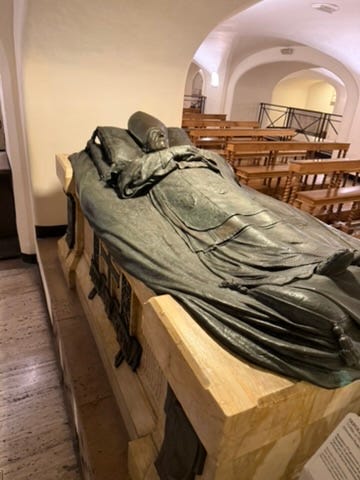
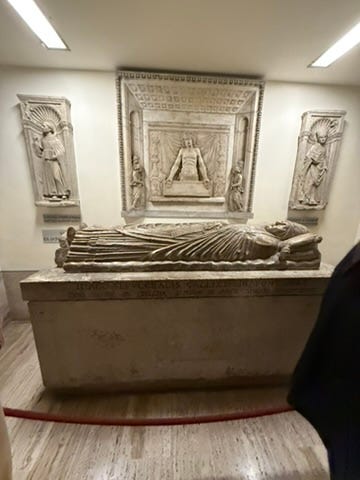
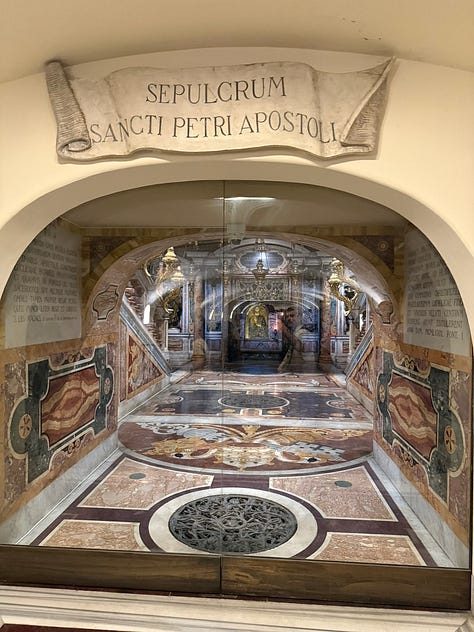
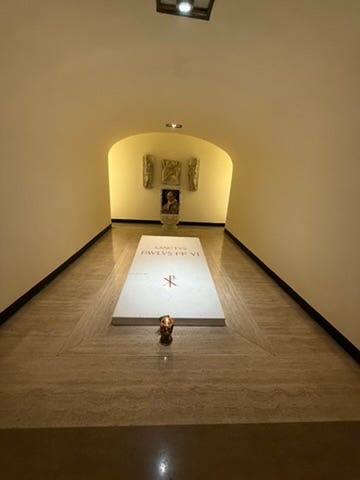
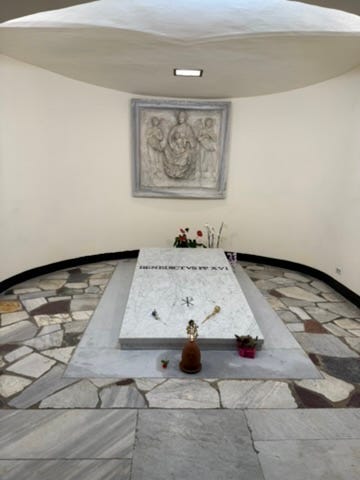
Now consider what someone might walk into on a given Sunday in America: A carpeted room with drop ceilings, a portable stage, screens for lyrics. Music could be hit or miss depending on the budget and quality of the volunteers. Accurate teaching from a seminary trained pastor. The gospel will get preached, and I have no doubt lives are being changed there. But what does the space communicate about God? Efficiency. Practicality. Comfort. We can set up and tear down quickly. We’ve removed barriers to entry, made church feel less intimidating. These aren’t bad goals, we SHOULD be removing every barrier for those far from God to hear the gospel.
But what have we lost in the process?
I think about my son licking that glass case, the kid was bored. He was overstimulated, overtired most likely, but under-engaged. He couldn’t possibly take this in, I was barely capable of doing so. Surrounded by priceless beauty he couldn’t access or comprehend. So he did something visceral to make the moment feel real, something to get a reaction from his father. And I wonder if that’s not a perfect metaphor. We’re surrounded by the extraordinary, the living God, the gospel that changes everything, the presence of the Holy Spirit, but we’ve somehow accomplished to put it all behind glass. Visible but not transformative. Present but not overwhelming us like it should.
So we chase emotional experiences that feel spiritual. We treat worship like a concert we attend rather than a throne room we’ve been granted access to. We approach prayer casually, worship carelessly, select sericulture based on mood (hello magic eight ball bible reading) not because we don’t believe, but because we’ve forgotten to be amazed. Because being amazed can be a choice.
The great risk isn’t that we’ll stop believing in God. It’s that we’ll believe in a version of God we’ve made safe. Manageable. Predictable. A God who fits comfortably into our lifestyle rather than one who disrupts it. Scripture is clear about the appropriate response to God’s presence:
Isaiah sees the Lord and cries, “Woe is me! For I am lost.”
Moses asks to see God’s glory and is told, “You cannot see my face, for man shall not see me and live.”
The disciples see Jesus transfigured and fall on their faces, terrified.
When was the last time you felt that way in worship? When was the last time I did? Have I ever?
I’m not suggesting we all become Catholic or that we need to build cathedrals. But I am asking myself - what practices and environments help me remember who God actually is? For me, it’s small things, recognizing small details and making small changes. I’ve started kneeling when I pray. Don’t mistake me, I don’t believe there magic in the posture, but because my body needs to be involved in recognizing who I’m talking to. I’ve also been creating space for silence. Not filling every moment with words, music, or a podcast. Sitting alone with my thoughts and waiting for Gods spirit to nudge me. And I’ve been seeking out beauty intentionally, in art, music and architecture that points toward the Creator.
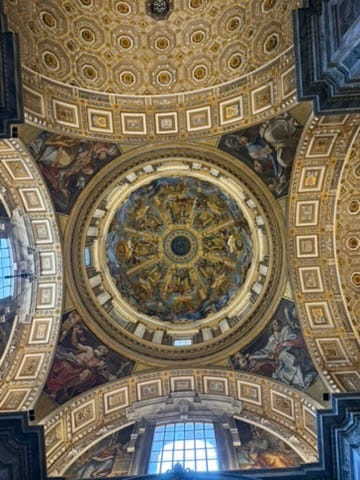
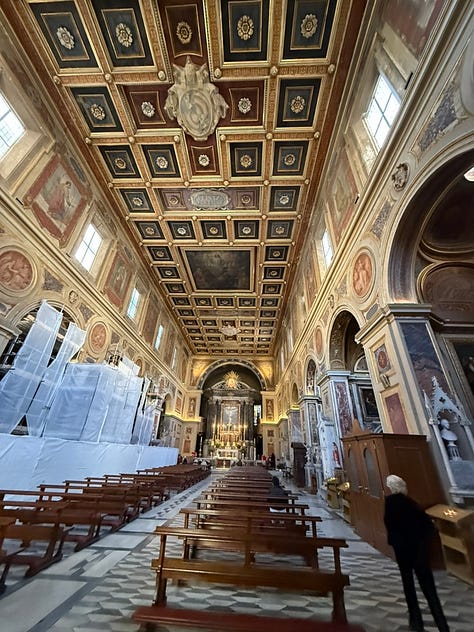
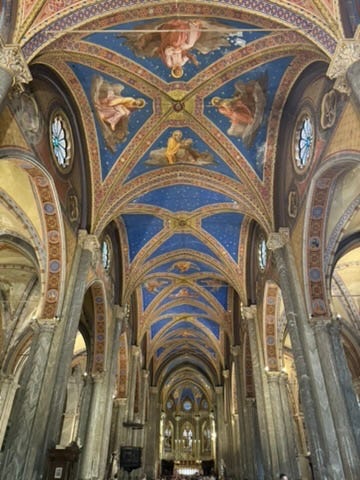
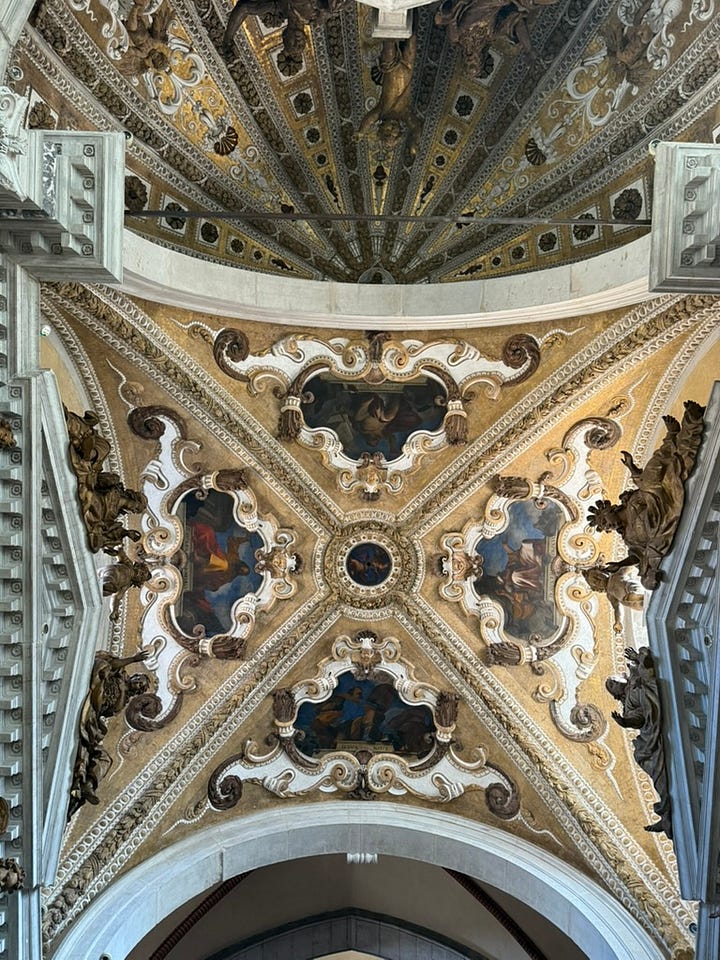
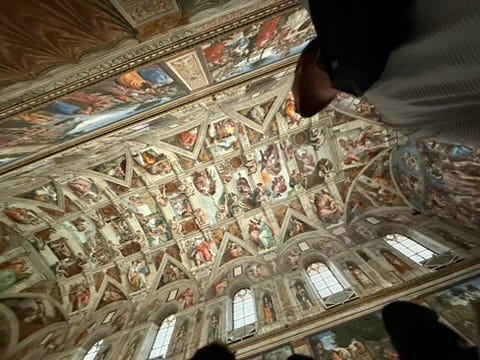
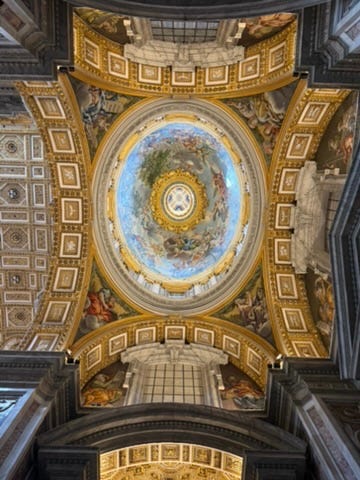
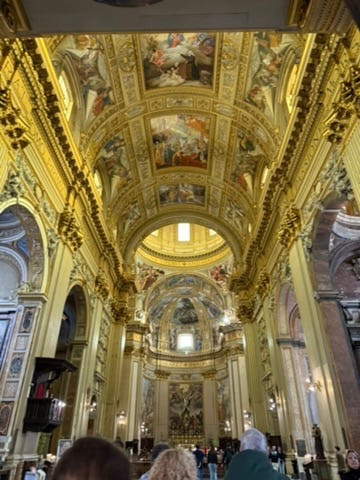
My son licked priceless art because he was bored in a palace. He couldn’t access what was right in front of him, so he acted out. I think about how often I do the same thing in my walk with God. How often I’m physically present but mentally elsewhere. Self selecting to lock myself out from the riches of God. How often I approach the throne of grace the same way I’d approach a customer service counter.
The worshipper in 1650 Rome had architectural advantages I don’t. But I have the same God, the same Scripture, the same Spirit. I have the same capacity for awe if I’m willing to cultivate it.
The question isn’t whether I’ve become complacent in my reverence for God. The question is. what the hell am I going to do about it?
In your corner,
Chance

